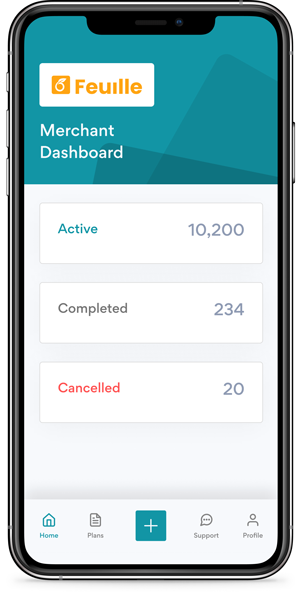Here at LayUp, we are determined to provide simple payment solutions to everyday South Africans to ensure they are on their way to a better financial tomorrow. Your personal finance savings decisions matter more than you know, and navigating your personal finance journey is seldom an easy task.
So, we’ve created this blog post to discuss 5 Personal finance Savings tips that you should prioritise to realise your financial goals.
We cover the following 5 Savings Tips to implement in your personal finances:
- Setting SMART Financial goals.
- Creating a system that keeps you on track toward your financial goals.
- The importance of budget planning and discipline.
- The necessity of an emergency fund.
- How tracking your expenses can help you gain a clear understanding of your financial health.
The certainty of uncertainty
What worked for those who have come before you will not necessarily work for you. Every system is in a constant phase of change and with this comes increasing uncertainty and instability. It is best to ensure that you are protected against economic and financial uncertainty, and Saving is one great way to achieve this. With that said, you need to be intentional and disciplined in setting your financial goals to achieve them.
- Set SMART financial goals
Everyone who has set out to achieve anything has, at some point, set some goals.
It’s important to set these goals after soberly assessing your current financial position or health and the specific goals that you want to work towards financially. More importantly, your goals should be clearly defined and easy to understand.
Here are some guidelines to remember when setting your personal financial savings goals.
Set Specific financial goals
Your financial goals need to be specific. You should be clear on what you want to achieve. Accurately describing your goals will help you determine exactly how you are going to succeed in achieving them.
Set Measurable financial goals
Setting measurable goals is important, simply because it guides you in the direction you are heading in. You need to know if the systems that you have in place are moving you toward your goals. Your financial goals should be what you intend to achieve in the short, medium and long term.
Set Attainable financial goals
Attainable goals enable you to be more aware of what you are capable of. Essentially, it also highlights the person you have to become for your financial goals to materialize. Personality traits such as self-discipline, mastering delayed gratification and the habit of gratitude will not only make you a more responsible manager of your income, but also a content person.
Set Realistic financial goals
Setting realistic goals ensures more efficient use of your time. Apart from this, realistic goals are set only when you completely understand your current financial position and what you want to achieve in your financial future. Realistic goals equate to realistic steps to take to achieve those goals.
Set Timely financial goals
Timely goals define your short-term, medium-term and long-term goals. Perhaps you want to double down on your debt level in the short to medium term or focus on retirement planning for when you intend to stop working. These should be aligned to your current phase of life.
- Have a system in place that will help you achieve your financial objectives.
Defining a clear process when you receive your wages or salary will help you to keep the main thing, the main thing. Paying yourself first is extremely important to remember.
Financial tasks such as balancing your budget and tracking weekly/monthly expenses may prove to be more or less some of the most boring things you may have ever experienced. These weekly and monthly tasks will help your system run like a well-oiled machine.
- Budget planning and sticking to it
Achieving your savings goals heavily depends on your ability to track your expenses and stick to your budget. You need to know where your money is going. In so doing, you can highlight the areas where you are overspending and take measures to gain more control over those areas. Perhaps there are areas where you are overstating your budget that could be directed towards something more beneficial in light of the goals that you have set.
Creating a monthly budget is necessary and helpful when you have to compare both the budget and your actual spending for the month.
Nedbank’s app, My Financial Life was created to help you achieve your financial goals. The app assesses your financial behaviours and your spending habits. There is a high behavioural element related to our spending habits, and identifying certain emotional triggers can help us gain more control of our spending habits.
- Emergency Fund
Remember when your mother told you to “Save for a rainy day? An emergency fund is one of the most important safety nets to have in place for those rainy days. The higher the level of economic uncertainty the more necessary it becomes to have this financial buffer. Ideally, you should plan to save between 6-9 months of your salary in your emergency fund. Preferably, after having shopped around for relatively higher interest rates and making sure to place the fund in an account that earns you interest.
If you don’t already have one, be sure to prioritise this step. Your emergency fund can be used for any expenses including healthcare, home maintenance and any other necessary life expense that can’t be covered by your current month’s salary.
An emergency fund can help you stay on track toward your goals, by helping you not get into more debt and keeping you a financially healthy month to month.
- Track your progress
This step is necessary to evaluate whether the systems in place to achieve your financial goals are working well. Various apps help you track your daily expenses to help you better understand your overall financial health and position. This can be very helpful and give a reason to remain disciplined when managing your money and getting results.
Conclusion
Saving is very important in your financial journey, and if it’s done right, it can become fun. Meeting your financial goals brings great joy, but always remember not to be too hard on yourself. Dedicate yourself to progress, not perfection.
If you’ve already implemented the steps above, where do you think you could improve? What step is the easiest for you?

